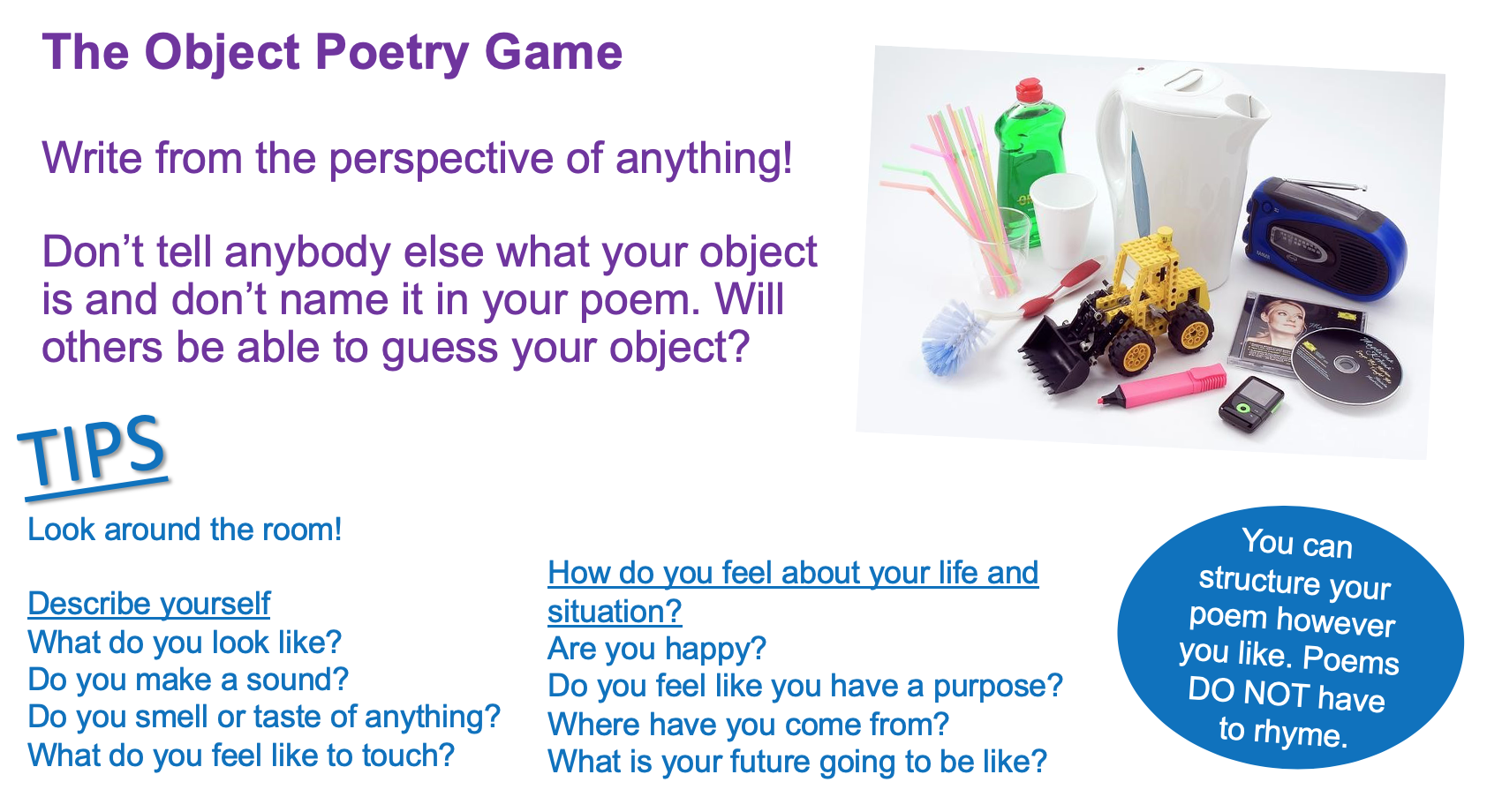For many young people, their only exposure to poetry is through their English teacher. Reading and analysing poetry is a core part of the English Curriculum. However, as poetry writing is not assessed at GCSE, this if often an experience that many young people miss out on.
This is a shame, as we know that writing for pleasure has so many benefits, just as reading for pleasure does – yet much more of our energy seems to be devoted to promoting reading. In fact, writing for pleasure is much less likely to be done at home than reading and is perceived as a bit more difficult by students, yet it can be a great way for those reluctant readers or those who find reading difficult to still enhance their literacy. Therefore, it is important we provide opportunities for students to express themselves through writing (and model a way to approach this), without it being linked to assessment objectives or mark schemes.
Poetry writing – by its very nature – is particularly beneficial as it encourages students to express their own emotions and make more precise choices. I know all of this sounds wonderful but as teacher myself, I know how busy we all are. We are stressed. We are tired. There’s so much GCSE content to get through. How can we find the time to promote something that doesn’t contribute to a Progress 8 score?
At my school, we have found lots of quick and easy ways to embed and promote poetry writing within our existing curriculum. I hope you find them useful. They have hugely improved our students’ attitudes towards poetry and their confidence as writers. Some have even started to write their own poetry at home, something I would never have imagined possible a couple of years ago!
1. Use poetry writing as a starter/springboard or a plenary task that assesses learning.
An example based on a class reader:
Starter: Today’s Chapter is called ‘x’. Write a poem with the title ‘x’.
Plenary: Summarise what we have read today in a poem.
2. When teaching Grammar, get students to look at poems which adhere to or break grammar rules, before writing their own versions.
For example, when I teach word types, we will look at poems that use verbs or adjectives in an interesting way, before students write their own poems, on a topic of their choice, with the same focus.
3. A great way to revise GCSE quotations is to get their students to write their own poems made up of the most powerful quotations in a text.
For example, to revise Power and Conflict anthology quotations, my students are challenged to write the most powerful war poem possible by combining the words, phrases and lines used in all fifteen poems.
4. Celebrate events such as National Poetry Day and National Writing Day with a poetry-writing lesson. We also ask students to write poems on Remembrance every year, which we then read out before our minute’s silence.
5. Turn poetry writing into a reward activity. My challenging Year 10 class love playing the ‘Object Poetry’ game as a reward for good behaviour and hard work in lessons.

When students do write poetry reward them with certificates for having a go. Students feel so proud that they have something to take home and show their parents. Photocopy all of the poems into a booklet to create an anthology and print off a copy for all involved: they feel like published writers! Show students you value their writing by entering it into competitions.
Ensure the poetry you teach at KS3 includes a diverse range of voices and poems by young writers who your students will relate to. The ‘Foyle Young Poets of the Year’ anthology is a great resource for this – you can request a free copy via The Poetry Society.
Finally, don’t forget to sign up to emails from the Education Team at The Poetry Society – they provide you with so many free ideas, inspiration and resources!
Kayleigh Meller is Deputy Head of English and Literacy Coordinator at Wilsthorpe School, Derbyshire.

